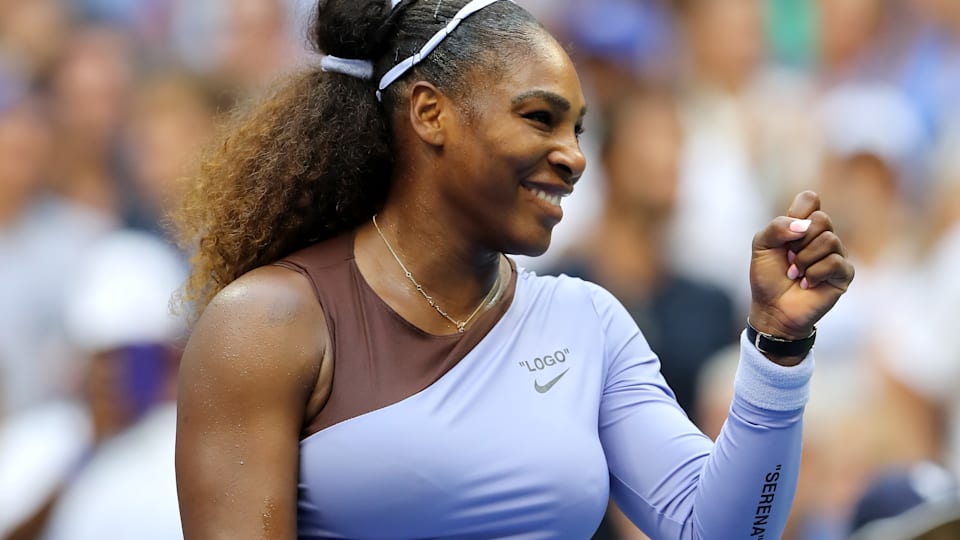
Serena Williams has rediscovered her Grand Slam form.
But is it due to or despite of breastfeeding?
After a year away from tennis to give birth and recover, the American needed to feel confident upon her WTA Tour return that she was doing what was best for her baby and her career.
She initially decided to ignore advice to stop breastfeeding, feeling that the process allowed her to fully bond with her daughter.
After eight months of nursing Alexis Olympia Ohanian Jr., the four-time Olympic gold medallist made the agonising decision to stop breastfeeding and concentrate on tennis.
Williams then made the final of Wimbledon and has dropped just one set en route to the US Open semi-finals.
It’s as if she never left.
Hard journey back for Serena
However, as seamless as Williams makes the transition from motherhood back to world-beating tennis player seem, the truth isn’t quite so simple.
Upon returning to competitive tennis, Williams suffered early exits early from WTA Tour events at Indian Wells and Miami.
This lead to coach Patrick Mouratoglou telling the 36-year-old prior to the French Open that she would have to stop breastfeeding to improve her performance.
He cited Williams’ weight gain and time spent away from practice to feed her baby as the primary reasons for her slump.
The coach’s perceived lack of empathy towards the psychological bond breastfeeding can create between a woman and her child ignited a debate into whether it affects athletic performance or not.
No hindrance to athletic performance
Despite Williams’ upturn in form, there is no scientific evidence to suggest that Mouratoglou was right in saying that breastfeeding hindered her athletic ability.
So says Dr. Gregory Davies, a professor in the Department of Obstetrics and Gynecology at Queen’s University in Ontario, Canada.
With a sub-specialty in maternal-fetal medicine and 22 years’ experience, he had a different theory behind Serena’s sub-par performances.
"Breastfeeding should not impact athletic performance," stated Dr. Davies, who was also invited by the International Olympic Committee in 2005 to research the effects of exercise and pregnancy in elite athletes.
"Every study that’s been published to date shows that weight loss is actually increased with breastfeeding.
"However many women who juggle breastfeeding and other activities have to spend less time on those other activities and perhaps in Miss Williams’ case, that meant time away from the intense workouts that are required to be able to compete at that high level."
The breastfeeding bond
Physical fitness and quality of training are only two components behind an elite athletes’ success.
Another significant factor to be considered is their psychological state, which can be deeply affected by breastfeeding in an elite athlete mother.
Williams chose to ignore her coach's advice to quit breastfeeding immediately.
"Once I got to six months I felt good about [giving up breastfeeding]. Then it was just emotionally letting go," she told reporters at Wimbledon.
Heptathlon Olympic gold medallist Jessica Ennis-Hill experienced a similar dilemma after giving birth to her son Reggie in 2014.
The Brit confessed that the decision to give up breastfeeding to concentrate on her career was so tough emotionally that she considered quitting athletics altogether.
“Miss Williams speaks quite clearly about how challenging that was to stop breastfeeding because it was a very important bond to her," Davies continued.
"At the same time, she felt for whatever her personal reasons were that her performance would be better if she stopped breastfeeding.”
Sarah Storey's alternative approach
On the other hand, Paralympic legend Sarah Storey told Olympic Channel that she believes breastfeeding provided a psychological boost to her career.
"It's absolutely possible to breastfeed and be at the highest level of sport because I’ve done it," said the 40-year-old, won has won five gold medals in swimming and a further five in cycling for Great Britain.
“Your baby is settled, it’s not crying, it’s not upset, and you can focus on the job that you’ve got to do as an athlete." - Sarah Storey, 10-time Paralympic Games gold medallist
“Knowing that I can provide for my child means that when I do this incredibly selfish job of being an athlete, where you have to be so self-centered and so self-absorbed with the hours that you’re training and racing, it gives me that yin and yang.”
Storey also felt that there may have been physical as well as emotional benefits to breastfeeding.
"My nutritionist said that breastfeeding boosts your own immune system, meaning the extra immunoglobulins you’re providing to the baby would also benefit you."
Dr. Davies claims there is no proof of the extra immunity benefiting athletic performance.
"There’s no research to support the claim that immunoglobulins are altered by breastfeeding to an extent that they would benefit performance.
"But breastfeeding is a very complex relationship and it’s a very individual connection between the woman and her child."
The World Health Organisation recommends that babies are exclusively breastfed for the first six months, due to the nutritional benefits.
